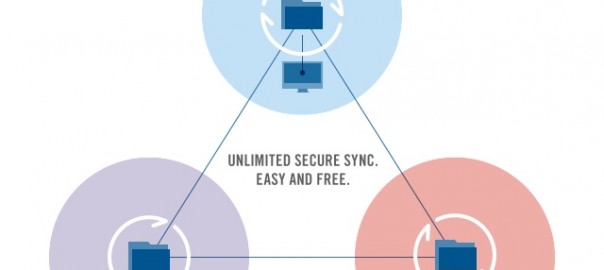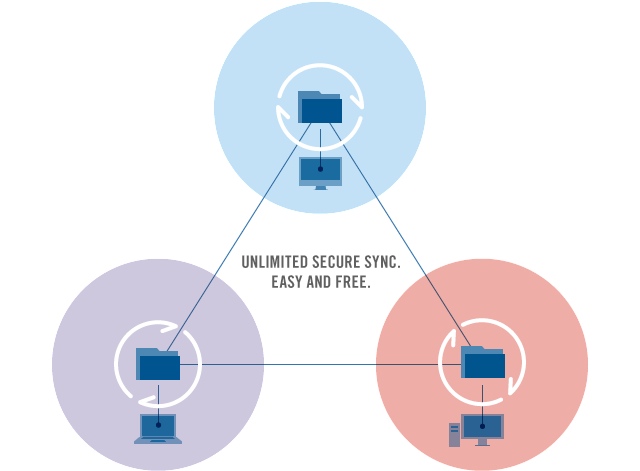
Further to yesterday’s post, I’ve been messing about Bittorrent Sync. As someone who is avowedly Web-centric, I’m used to a world where files sync via the Web and one signs up to services via email. There’s none of that with Bittorrent Sync:

As a lover of Dropbox, I’m investigating Bittorrent Sync as a way to augment the way I currently sync files across machines.* I mentioned above that there’s no Web component involved. Instead, files are synced directly from machine to machine via a secure and encrypted process that isn’t available to other Bittorrent users – just the people with whom you’ve shared a ‘secret key’.
If you’d like to give it a try, download the software for your computer and enter this ‘secret’ key, giving read-only access to my BTSync folder: RCFZPEYBNV4MGZTQEO2ITOANGEZNF42WF
Of course, it’ll only work when I (or someone else who has synced the files) is online! There must be a way to install the software on a server so it can act as a node?
* This would be an awesome way of sharing learning and teaching resources en masse!
Kyle Wiens from Wired magazine on The New MacBook Pro: Unfixable, Unhackable, Untenable:
We have consistently voted for hardware that’s thinner rather than upgradeable. But we have to draw a line in the sand somewhere. Our purchasing decisions are telling Apple that we’re happy to buy computers and watch them die on schedule. When we choose a short-lived laptop over a more robust model that’s a quarter of an inch thicker, what does that say about our values?
Every time we buy a locked down product containing a non-replaceable battery with a finite cycle count, we’re voicing our opinion on how long our things should last. But is it an informed decision? When you buy something, how often do you really step back and ask how long it should last? If we want long-lasting products that retain their value, we have to support products that do so.
Today, we choose. If we choose the Retina display over the existing MacBook Pro, the next generation of Mac laptops will likely be less repairable still. When that happens, we won’t be able to blame Apple. We’ll have to blame ourselves.
This is less about Apple and hardware and more about a consumerist, short-term attitude that over-privileges form over function. And, of course, this applies to the Open Web too.
We need less commodification, not more.


